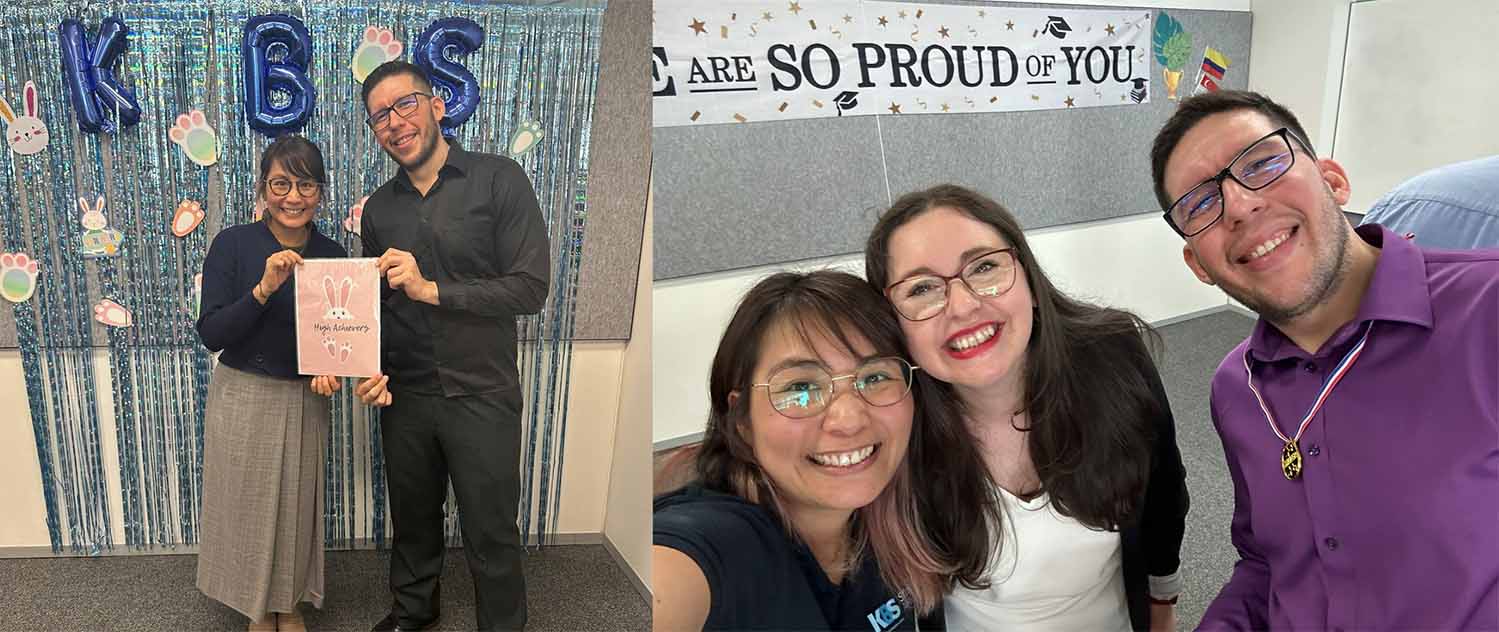From Corporate to Cause - Using Information Technology to benefit those in need
Where it all started
Since I was a child, I have been exposed to technology. I remember playing video games in black and white and enrolling into computer courses throughout high school.
I started as an electronic technician when I was a teenager at a computer supplies company. My hands would get scars and cuts from the computer plates, but I enjoyed the work. I liked creating and assembling parts that would make a computer ‘come to life’.
By the time I enrolled at university, I was already a ‘fanboy of IT’. After I graduated, I wanted to work in different IT specialisations. For the next 10 years, I held roles in software development, IT service delivery, security, consultancy, managing data centres and networks. I fixed antennas in isolated areas in Colombia and Venezuela so that data could be transmitted from excavation sites to the city. I worked as a Global Service Desk Analyst where I conversed in Portuguese and Spanish to resolve numerous IT requests. I wanted to try different fields to find out what I enjoyed the most and that turned out to be IT service delivery.
The next step
After 10 years of working in the IT industry, I wanted to pursue leadership roles. I had developed the technical skills but was lacking business and financial acumen. My skill set was also limited to a specific region (i.e. North and South America).
My main goal was to become a Chief Technology Officer (CTO) of a global corporation. I needed to learn how to expand and operate a business on a global scale and develop cross-cultural knowledge.
I decided to come to Australia to study as the company I was working for had a Sydney office and I wanted to study at a business school that had more practical learning, personalised support and a ‘community’ vibe. Therefore, I decided to study an MBA with a specialisation in International Leadership at Kaplan Business School (KBS).
The big disruption
My MBA taught me about the Australian Stock Exchange, wealth creation, financial cash flow and investment strategies. I learned how companies operated based on their corporate structure and how to critically analyse their financial and strategy reports. I was getting the knowledge I needed for my career goal to become a CTO for an international company.
But then, a big disruption happened.
The company I was working for went through a restructure. It was decided that my role as a Global Implementation Manager would be based in India, and I was given the choice to move to India or take a redundancy. I wanted to complete my MBA, so I left the company.
I needed to find a new job. Even though I had many years of work experience, it wasn’t local work experience. I went to the KBS Careers Central team to learn how to access the Australian job market. The Careers Advisors helped me adjust my resume and improve my LinkedIn profile. My lecturer, Adam Murphy, taught me how to do a proper Cover Letter. I have written cover letters before, but for the first time in my life, he explained it in a methodical way helping me understand their structure and why.
I used their advice in my job search. Out of every 10 job applications I received 5-6 interviews!

Stepping into a not-for-profit
I performed well at my job interviews and was offered roles at a director level, but I couldn’t accept them. The companies wanted me to work full-time but my visa only allowed me a limited number of work hours. It was a tough situation.
One night, I was looking for jobs on SEEK, and I saw an IT role at Community Legal Centres Australia (CLC) - a not-for-profit (NFP) organisation. I have never worked for an NFP. The job description said that part-time students were encouraged to apply so I did. I was invited to an interview and afterwards CLC offered me the job, flexible hours and hybrid work!
My role at CLC as an IT Application Support Officer is to deliver accurate information, maintain data integrity and manage their Customer Relationship and Content Management systems so that each centre can deliver the relevant services to their clients.
A change of mindset
For most of my career, I have been working in large corporations whose focus was on generating revenue. At an NFP, the focus is completely different. CLC provides free legal advice to disadvantaged people – particularly those facing financial hardship, discrimination or domestic violence. My colleagues come to work every day with a passion in helping people.
I have learned about the different struggles people face and the help they need. This has inspired me to head in a different direction for my career. I want to create value for society with a focus on social and environmental impacts.
The challenges
The biggest challenge in my role is getting accurate data. The nature of our work is very sensitive, so data needs be validated by several people to ensure its accuracy. We need to run conflict-checks to ensure that people who are acquainted with each other are not represented by the same centre.
As we are an NFP, we depend on funding, so we have a small team and limited resources. Our IT team have over 100 centres that we need to support. We partner with our Data Analytics department to work strategically and efficiently with the resources we have.
Several of the work processes need improvement. When I first started, data extractions were being run on a laptop which took a long time. I reviewed all the services and licenses we had and created a set of virtual machines to export data from the cloud making the process faster.
Many IT processes have not been documented or streamlined, so I have been writing IT procedure documentation that will be used at a national level and training will need to be organised for all staff and new users. Later in the year, I will start looking at automation for coding and data warehousing.
Where I see myself in 5 years
If you had asked me a year ago where I saw myself in 5 years' time, I would have answered as a CTO of an international corporation. Now, I see myself as an IT head of an organisation that delivers value to society and makes decisions that are socially responsible, ethical and moral. What I am doing at Community Legal Centres is close enough to how I want to shape my life as I have opportunities to use technology responsibly to help people.
Advice about working in IT
If you’re thinking of a career in IT, my advice is to treat each IT field like food. Taste it, if you don’t like it, move on to the next dish. Work for a few years in each field (that interests you) to find out which one you want to pursue a career in.
IT is about innovation, change and development and we need to mirror that. To thrive in your IT career, you need to embrace, accept and leverage change.
Connect with Manuel:
https://www.linkedin.com/in/mamcwx/
Become a global leader who drives change and innovation. Learn more about our MBA (International Leadership) and the our ultimate guide in doing an MBA in Australia.









